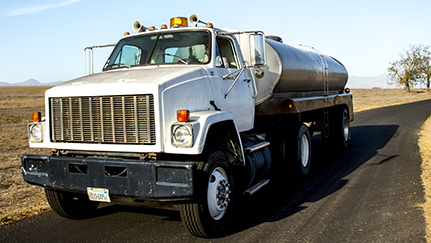Nationwide business solutions center
From cybersecurity advice to social media guides, our business solutions center can provide helpful business tips and information to save you money and keep you safe.
Browse educational articles by topic
Break-even point calculator
Learn how to calculate the break-even point for your business.
Commercial real estate mortgage calculator
Use this calculator to estimate monthly commercial real estate payments.
Business valuation calculator
Estimate how much your business might be worth.
Self-employment tax calculator
Estimate how much you may pay in self-employment tax with this calculator.

Quarterly Cybersecurity Checklist for Small Businesses
In this technology age, cybersecurity should be front and center for all businesses, regardless of their size. It’s important for small businesses to prioritize cybersecurity, so they can protect their data, their customers and their reputation.

Benefits of combining D&O/Cyber insurance coverage
Explore the benefits of combining Directors & Officers (D&O) and cyber insurance with Nationwide for comprehensive risk management, addressing both leadership liabilities and cyber threats. Learn about potential cost savings and streamlined policy management.

7 tips for creating your company’s data security policy
Discover 7 tips for creating your company’s data security policy.

Staying resilient against the latest cyberthreats
In the realm of cybersecurity, a threat vector refers to any avenue or method a cybercriminal can leverage to infiltrate a target’s network, system or device. In other words, threat vectors serve as pathways for cybercriminals to conduct their attacks.

Guarding against and responding to ransomware attacks
Ransomware is one of the costliest cyberattack methods, totaling an average of more than $4.5 million in losses per incident (not including the actual ransom payment). What’s worse, growing cybercriminal sophistication and evolving attack techniques have caused ransomware incidents to skyrocket; over the past decade these attacks have surged by more than 240%.

Guarding against and responding to business email compromise attacks
A business email compromise (BEC) attack involves a cybercriminal impersonating a seemingly legitimate source via email to gain their target’s trust. Learn more about BEC attack scenarios and tips on how to prevent these attacks.

9 steps to take in response to a cyberattacks
As cyberattacks continue to rise in cost and frequency across industry lines, it’s important for your business to be prepared to handle these incidents as quickly as possible and minimize related losses.
What is cyber insurance?
Learn how a data breach can damage more than just your computer system.
Cyber security for businesses
Learn the types of insurance that can help protect your business from digital risk.
Why ransomware attacks are on the rise
Ransomware attacks have increased dramatically over the past year. Discover why these attacks are growing and what you can do to prevent an attack.
What are phishing, vishing and smishing scams?
Discover tips on how to spot email, voicemail and text message scams.
Tips for creating strong passwords and staying secure
Discover how to create a strong password to keep your online accounts secure.
Cybersecurity tips and resources for small businesses
Discover helpful tips and resources to help protect your small business from cybercrime.
How to conduct an internal audit
Learn about the benefits of conducting an internal security audit to maximize efficiency for your small business.
What is a phishing email?
Find out how to identify and report email phishing attacks.
Mobile security for business
Learn about mobile security and how to secure data for your small business.
Network security for your small business
Find out some of the types of network security that could protect your business.
Protect your small business from a cyberattack
Tools and tips to help you protect your small business from cyberattacks and other cyber risks.
How to train your employees on cybersecurity
See why training your employees on cybersecurity best practices is essential for keeping your business safe from cyberattacks and other digital emergencies.
Cybersecurity statistics and facts
Prepare your business for any future cyberattacks or data breaches with these cybersecurity tips.
Top trends in cybersecurity
Stay on top what’s new in the digital landscape by reading about these cybersecurity trends.
Why cybercriminals target small businesses
Understand what steps you can take to protect your small business from cyberattacks.
Creating a data backup and recovery strategy
See what steps you can take towards creating a data recovery plan.
Digital marketing resources
Techniques for updating and optimizing your website
Optimization is an essential tool for attracting new users to your website. Here are some techniques to get more clicks.
Tip for business owners who want to start creating content
Learn what content marketing is, why you need a content marketing plan, and how to create content for it.
What is digital customer experience and how to create a strategy
Learn more about how to transition your customer service model to digital.
Customer experience map: What it is and how to create one
A customer experience map identifies touchpoints in the customer journey. Learn how to create one.
5 ways to future-proof your brand & marketing strategy
Stay ahead of the curve with these helpful tips for future-proofing your brand.
Business holidays for your small business marketing content calendar
Discover business holidays to help you plan social media marketing campaigns and seasonal events.
What is content strategy?
Use this step-by-step guide to set you apart from competitors.
How to create a social media strategy
Keep in mind these tips when creating your social media strategy.
5 tips for building strong social media communities during difficult times
Tips on making your social media audience feel more connected to your brand on a personal level.
Creating a social media brand personality
These tips can help you get started on creating a social media personality for your brand and further connecting with your audiences.
Local SEO tips and techniques
These local SEO tips and techniques can help your customers find you and allow your business to grow.
How to use social media for business
See how you can use social media to help your business and maximize your digital presence.
Helping small business owners create successful social media plans
Nationwide offers small business owners simple guidelines to help create a successful social media plan for their business in the event of disruption or disasters.
Finance resources

How to Leverage Community and Your Network to Grow Your Small Business
Learn how and where to apply for business grants created specifically for women. Review the list of grants plus our application tips.
Tips for managing small business insurance costs
Manage your small business insurance costs with these money-saving tips.
The importance of your business credit report
Empower your business by discovering the importance of business credit reports and learning how to easily check them.
What is contract financing?
Discover what contract financing is and how to qualify.
Understanding business equipment financing
Discover how you can use business equipment financing to help meet your business’s needs.
Tips to help reduce business expenses
Get tips for how to lower business expenses to help your business be more profitable.
Inflation's impact on businesses
Learn the steps businesses take to withstand rising inflation.
Sales margin: What it is and how to calculate it
Discover what sales margin is and how to calculate it.
How much do small businesses pay in taxes?
Learn about the various factors involved with how small businesses pay in taxes.
How to use crowdfunding for business
Learn how you can use crowdfunding for your small business to get financial backing.
How to file business taxes
Learn how you can approach taxes for your business.
How to get a small business grant
Learn about the types of small business grants and how to apply.
Business loan vs. line of credit
Learn about the differences between a loan and a line of credit, how they can benefit your business, and determine which is right for you.
How to raise capital
Learn about the steps you need to take to find sources, develop a plan, and grow your company.
Growing your business
Why disability insurance is essential for financial wellness
Discover effective strategies to grow your small business by leveraging community connections and networking opportunities.
How to find a business mentor
Learn how to find a business mentor and kickstart your growth with expert guidance today.
How to get involved in your community as a business
Discover various helpful tips and suggestions to help your business get involved in the community.
Scaling a business with confidence
Learn how to scale your business with a focus on strategic planning, diversification and team building.
What is business sustainability?
Learn about the importance of business sustainability and how you should be incorporating it.
Three tips to work smarter (not harder) as a business owner
Learn 3 tips to help you work smarter, not harder, as a business owner and create more space for creativity and joy—two things that lead to a sustainable business.
10 customer retention strategies
Check out these strategies to help you keep customers coming back to your business.
Customer service improvement strategies
Discover helpful strategies to improve your customer service.
Real estate marketing ideas for real estate agents
Discover helpful real estate marketing ideas and tips to better promote yourself and your listings.
How to lead with purpose: What’s your why?
Learn more about how to find your purpose.
How to market an auto repair business
Discover helpful ways to market your auto repair business.
How to conduct a SWOT analysis for your small business
Here's how to build a winning-strategy for your business utilizing the SWOT analysis method.
How to make the most of Small Business Saturday
Prepare your small business by taking advantage of these helpful ideas to create a great experience for your customers.
What is strategic planning?
Learn how the strategic planning process can help you identify business goals and develop a plan to grow your businesses.
Updating your insurance as your business grows
Follow these tips and insights to ensure your business is properly covered.
How to advertise a small business
Learn how you can advertise and grow your small business with these tips.
What is a sales funnel?
Learn about the sales funnel stages and what they mean to your small business.
How to create a marketing plan
Follow these steps when creating a marketing plan for your business.
How to determine the value of your business
See what methods you can use to determine and grow the value of your business.
Stages of business planning
Learn about the stages of an entrepreneur’s mindset and how to build an actionable business plan.
Improving loss control
Evaluate your company’s loss control with these risk management tips.
How to drive word-of-mouth marketing
Find out how you can grow your business by word-of-mouth marketing.
Nationwide celebrates 2019 and 2020 Pitch to Win award winners
See the list of 2019 and 2020 Nationwide Pitch to Win small-business contest winners, runners-up and finalists.
Managing employees
How to build business credit for small business loans
Check out these tips to increase your business credit score for small business loans.
8 tips to navigate workplace conflict resolution
Discover helpful tips to effectively resolve conflicts in the workplace.
Virtual team building activities for remote work
Discover ways to keep your remote team engaged with virtual team building activities.
How to help employees set and reach their goals
Learn how to help your employees set and reach their goals.
How to promote employees
Learning how to promote employees is essential for business growth and management.
Benefits of employee training and development
Discover how employee training and development programs provide value.
Top qualities of a good manager
Are you looking to be a good manager? Learn the top qualities that make a good manager.
Workplace summer hours?
Offering a revised work schedule in the summer can boost morale and performance.
Hiring an intern for your business
Learn how to find interns that will be a good fit for your business.
How to keep employees engaged while working from home
How to keep employees engaged while working from home.
How to prepare and deliver an effective performance review or appraisal
Discover how to prepare and give an effective performance review or appraisal.
What is an employee handbook?
Learn what qualities make a successful employee. It is important to hire employees that have the required skills for the job and these top characteristics.
Top qualities of a good employee
Learn what qualities make a successful employee. It is important to hire employees that have the required skills for the job and these top characteristics.
How to engage employees in digital trainings
See how you can keep yourself and your employees engaged during online trainings.
How to show employee appreciation
See how your business can demonstrate employee appreciation.
How to motivate employees
Learn how to motivate employees and which strategy is right for your small business.
How to hire employees
Learn how to hire employees, from what paperwork you’ll need to the crucial steps in the recruiting process.
Top 7 effective employee retention strategies
Learn about employee retention strategies and how to reduce employee turnover.
Tips on how to manage an intern
Follow these tips to be an effective intern manager and a valuable internship mentor.
Management resources
Five ways AI can elevate your small business’s productivity
Read about five ways to use AI to maximize your time and elevate your business's productivity.
How to determine commercial property value
Learn about variables and different approaches used to determine commercial property value to find which one is right for you.
Tips on how to project manage effectively
Learn effective project management skills, tools, and methodologies to help usher your projects across the finish line.
Tips for hiring remote workers
Working remotely has become more common in businesses. Learn how to hire remote workers with these great tips.
Small-business technology solutions
Learn how to adopt new technologies for your small business.
How to choose a location for your business
Learn more about what you should consider when choosing a business location.
Finding your next commercial office space rental
Learn what steps you should take to find the perfect place.
Small business sustainability tips
Discover helpful tips for improving the sustainability of your business.
Copyright, trademark, or patent – what’s the difference?
Understand the differences and find out which one your business may need.
How to survive a crisis as an entrepreneur
Advice on what you can do now to help your business and others during challenging times.
How to do payroll for small business
Learn about the benefits of an efficient Payroll system for your small business.
How to choose a pricing strategy for your business
Learn about common pricing strategies and how they work.
Getting the right commercial vehicle insurance quote
Learn what information you’ll need to get a commercial vehicle insurance quote.
Starting a small business fleet
Here are some important considerations when starting your own fleet of vehicles for your business.
5 things businesses should know as the economy reopens
Find out the major changes that reshaped consumer and commercial behavior.
Managing your business through economic uncertainty
Tools to help you manage economic uncertainty during challenging times.
How to manage cash flow for your business during economic uncertainty
Guidelines on how to maintain cash flow during challenging times such as the COVID-19 pandemic.
Cyberattacks are on the rise
Protect yourself and your business during the pandemic.
Keep your small business running smoothly – from a distance
Working in the age of COVID-19.
Making safe restaurant deliveries
Nationwide has important guidelines for keeping restaurant delivery workers safe during the COVID-19 pandemic.
Stay connected to your customers
There are still many ways you can stay connected to your customers through COVID-19.
How to reopen idle facilities
Nationwide offers guidance for how small-business owners can manage reopening a facility idled by the COVID-19 pandemic.
Pivoting a small business in changing times
Nationwide offers small-business owners simple guidelines to help determine whether they should consider pivoting their business when consumer behaviors change as a result of a disruption, such as COVID-19.
Building customer loyalty virtually in challenging times
Nationwide offers small-business owners simple guidelines on how to build customer loyalty virtually during challenging times such as the pandemic.
Helping small business owners create a continuity plan
Nationwide offers small-business owners simple guidelines to help create a continuity plan for their business in the event of disruption or disasters.
How to adapt your online strategy in uncertain times
Tools to help you virtually build customer loyalty in challenging times with your website and e-commerce.
Risk management resources
Why disability insurance is essential for financial wellness
Learn more about the benefits of disability insurance and if you should consider getting coverage.
Protecting commercial property from fire hazards
Protect your employees and commercial property with fire safety tips.
How to keep your workplace safe and secure
Keep yourself and your staff safe and healthy in the workplace with these tips.
Tips for protecting your small business's intellectual property
Learn strategies to protect your intellectual property rights and secure your innovations.
Safe driver training and resources
Operating vehicles can be a significant source of risk. Get training, resources and expertise to help keep drivers safe.
Preparing your business for a natural disaster
Hurricanes, wildfires, tornados, and storms can impact your business. Learn how to prepare.
Small business legal requirements: 3 steps to protect your brand
Here are three legal requirements for starting a small business that will help secure and protect your brand.
Why does your business need ACH fraud protection?
Find out how ACH fraud may impact your business and how to prevent it.
What is calculated risk in business?
Learn more about how you can leverage calculated risk in your business decisions.
Navigating key person risks
Identify key employees and prepare your business if they need to leave temporarily or permanently.
Risk management considerations for new businesses
See what risk management considerations you will need to make for your new business.
Risk management for small business
Find out how to assess the risks your small business may face and put a risk management plan in place.
Avoiding employee fraud
Find out the steps you can take to avoid employee fraud before it occurs.
Starting your business
What is a DBA and when do you need one?
Learn more about what a DBA, or “doing business as,” name is and when it’s needed.
Business Partnership Agreement: What it is and who may need one
A partnership agreement aligns roles and responsibilities within an organization. Learn what it is, what's included, and if you may need one.
Unexpected business startup costs
If you’re starting a small business, consider planning for these unexpected business startup costs to help protect your new business from the unforeseen.
How to build business credit for small business loans
Check out these tips to increase your business credit score for small business loans.
Top challenges of entrepreneurs
Find out the top five challenges of entrepreneurship and the solutions to overcome them before starting your business.
3 tips I wish I knew about money before starting my first business
Get 3 tips you should know before starting your first business, including advice on business owner salary, rainy day funds, and how to track expenses.
The 4 best books to read for starting a small business
If you’re starting a small business, check out these four book recommendations from a successful small business owner for tips to be successful.
How to turn your hobby into a business
Thinking of turning your hobby into a small business? These tips can help you get started.
How to write a business plan
Find out which type of business plan to use and what to include.
Business structure: How to get started
Explore what type of business structure may be right for your business.
Legal issues faced by entrepreneurs
Learn about common legal issues faced by entrepreneurs when starting a small business as well as the difference between ethics and legalities.
Why do small businesses fail?
Understand the most common reasons behind why some small businesses fail and how you can avoid these mistakes as a business owner.
What are the best businesses to start?
Discover what type of business you can start and why you should pursue it.
How to start a small business from home
Follow these steps on how to start a small business from your home.
13 ways to get small business funding
Learn the different types of funds available and how to qualify for a loan.
Surety & Fidelity Bonds
What Are Surety Bonds and How Do They Work?
Discover the ins and outs of surety bonds: their purpose, benefits, and how they safeguard agreements.
What does it mean to be bonded?
Discover the differences between being bonded and insured, the types of bonds in businesses, what it means to be bonded, and how to get bonded. Learn more.
What Are Construction and Contract Bonds?
A construction, or contract, bond provides protection against disruptions or financial loss for project owners. Learn more about construction bonds today.
Different types of contractor and construction bonds
Contractor bonds are also known as construction bonds, and there are several different types ranging from bid to performance to maintenance. Learn more.
What is a fidelity bond?
Learn about how a fidelity bond works and the different types of fidelity bonds. Find out if your business needs a fidelity bond and how to get one.

















































































































































